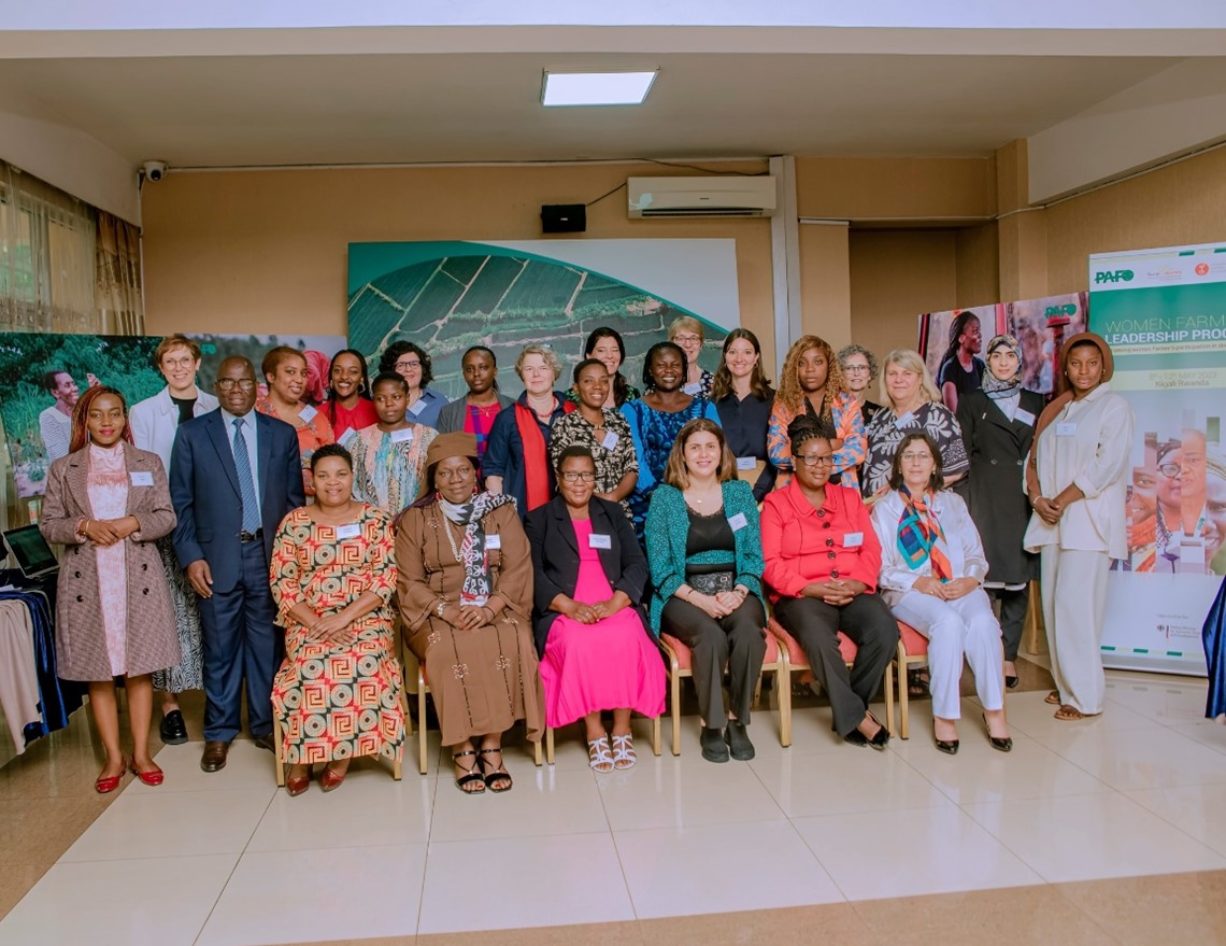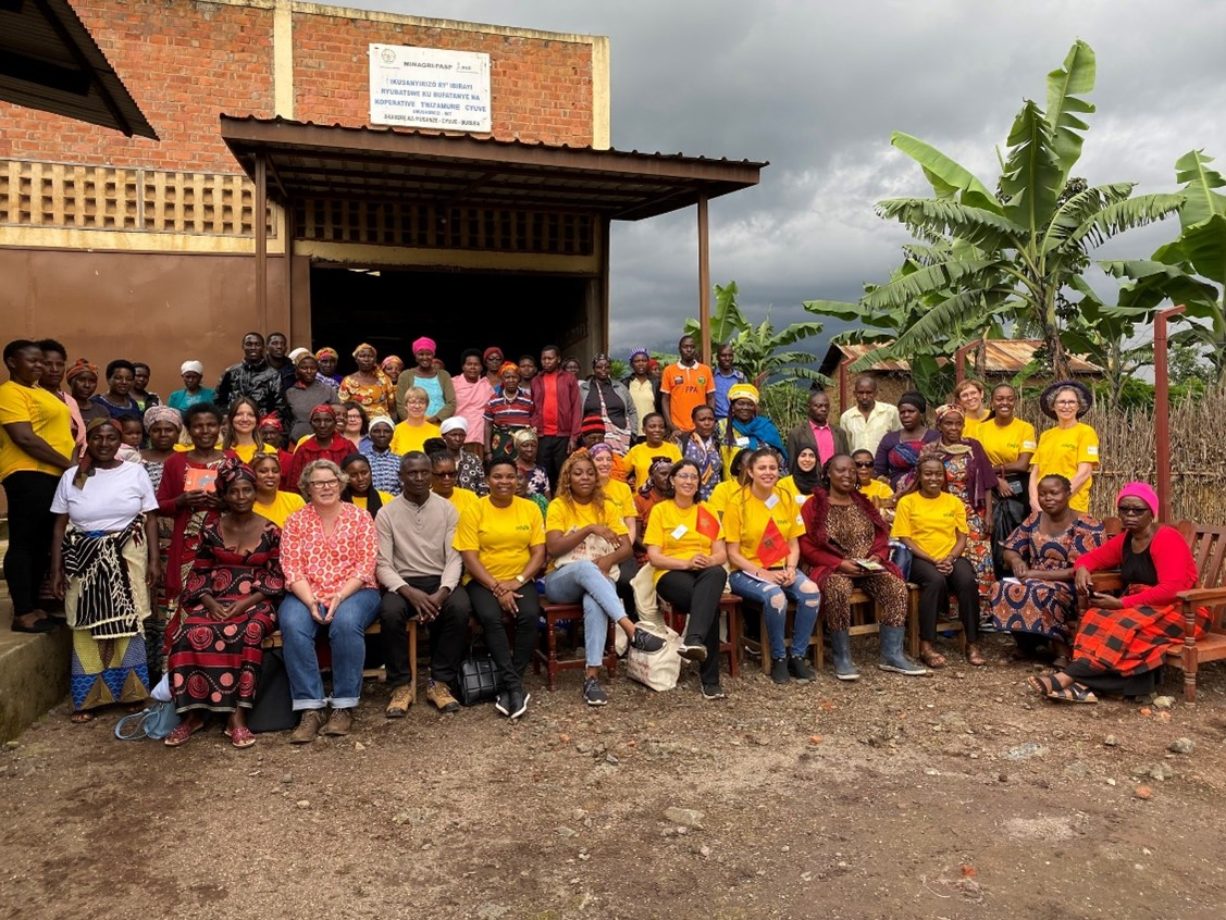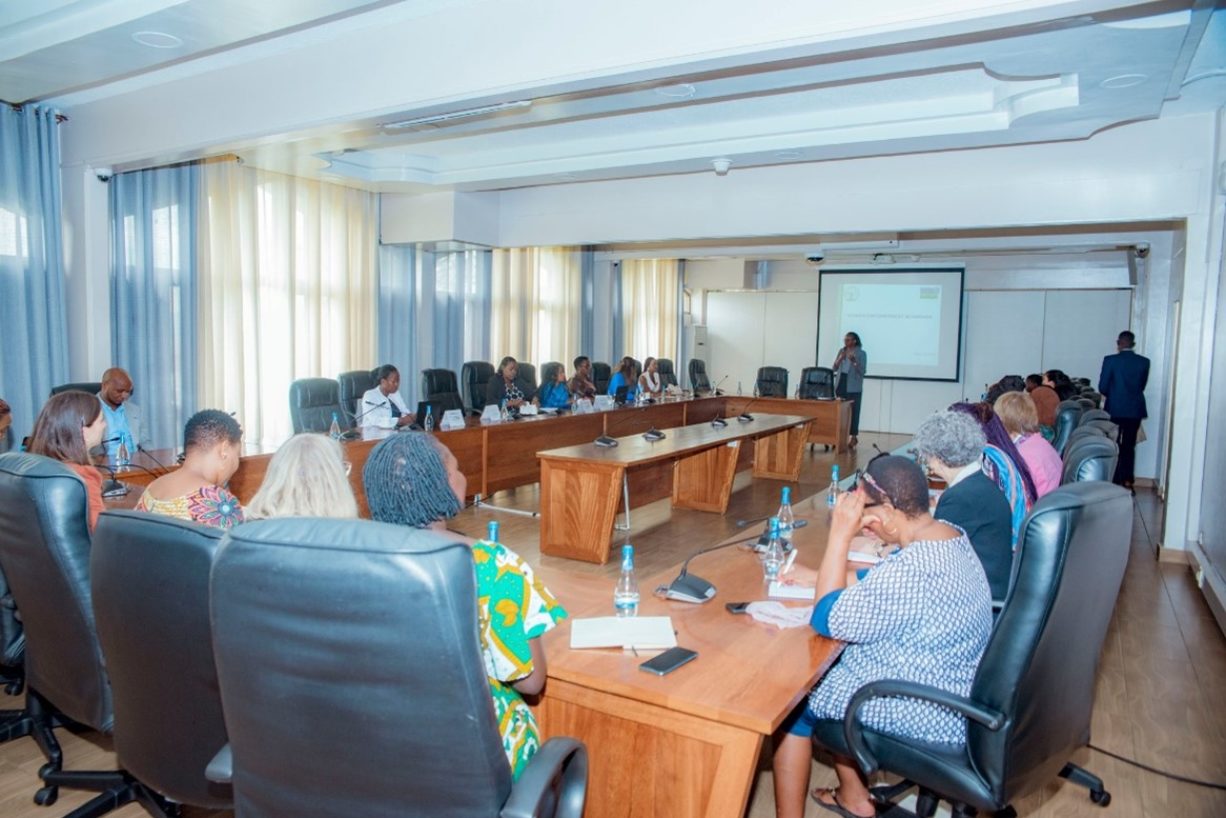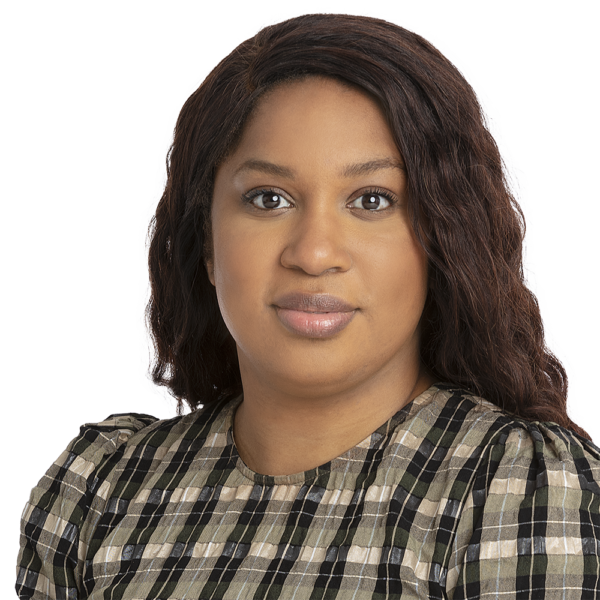
Back in early 2023, the AHA signed a statement of intent with the Pan-African Farmers’ Organisation (PAFO), which marked the beginning of the programme. The Women Farmers’ Leadership Program aims to facilitate networking for women in leadership positions in regional and national farmers’ associations, as much in African countries as in Germany. In addition, the programme aims to enable capacity building and create a platform in the long-term where women can exchange ideas at international, regional and national level. The programme is being led by PAFO and implemented in partnership by the AHA and the Deutschen LandFrauenverband (dlv).
The first seminar of the Women Farmers’ Leadership Program took place in the “Heart of Africa” (Rwanda), which is also the headquarters of PAFO. Five ladies from the dlv travelled to the Eastern African country. Likewise, 15 African ladies from 12 different African countries arrived in Kigali on Sunday 7 May. The next day, the 20 participants started their five-day training. At the beginning of the day, they were welcomed by PAFO Executive Director Dr. Babafemi Oyewole. The training aimed to shed light on participants’ own leadership style, as well as their existing leadership skills, and to jointly reflect on one’s own role in the organisation and understanding of leadership. The ladies thereby gained insights into themselves, but at the same time were able to share their experiences and points of view with other participants. In addition to the training, an excursion also took place. On Wednesday, the ladies travelled together to the north of the country, where they visited a cooperative run by women. There, they had the opportunity to learn from the members of the cooperative how they are organised, what benefits are associated with their membership and which cultivation methods they use. In addition, programme participants were given a guided tour of the fields, which are collectively used by the ladies in the cooperative.

After the one-week workshop in Kigali, participants are now following a ten-week online tandem-learning phase. In tandem, they have the opportunity to put into practice what they have learned and exchange ideas about everyday occurrences. The final workshop is scheduled to take place in Germany in September 2023 when the 20 ladies are to meet again in person.

The following day, the 20 ladies in the programme were warmly welcomed by the Women’s Representative of the Rwandan Parliament. The deputy and three of her colleagues presented the country’s laws and programmes which currently favour women in Rwanda and which came into force about 30 years ago after the genocide in the country. During the visit, the ladies could ask questions and talk with the deputies. After the reception, the ladies visited the Genocide Memorial, located in the Parliament grounds. The training finally ended on Friday with a joint closing ceremony.
This gathering of young, older, experienced as well as less experienced women, as well as ladies representing differing cultural backgrounds and points of view, showed that female leaders in all the countries represented in the programme still need to overcome structural and societal obstacles. The week spent together was enriching for all participants, especially thanks to the exchanges. The methods used in the training provided the ladies with many insights, which will be further explored in September.
This could be of interest to you:
-
International Cooperation -
International Cooperation Six farmers’ organisations, one change and one mission
Read -
International Cooperation Well-represented at the Global Forum for Food and Agriculture and International Green Week!
Read
